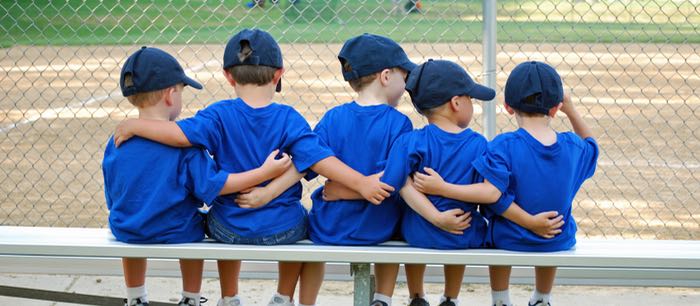
Students have always drawn life lessons from the rough and tumble laboratory of recess breaks.
In This Lesson

What is social-emotional learning?
Can students develop emotional intelligence (EQ) at school?
How do schools teach self-awareness?
What is grit?
What are soft skills?
How does SEL connect with mental health?
▶ Watch the video summary
★ Discussion Guide
Kids reach conclusions about who they are and what they want in the chaos of growing up. School generates teachable moments constantly. We should all thank the teachers, principals, and other school staff who keep their cool and help students draw good conclusions. That doesn’t always happen.
The chaos of school regularly generates teachable moments
What is Social-Emotional Learning (SEL)?
Schools are primarily designed to deliver academic learning. Books. Math. Homework. Tests. Grades. But school is also the backdrop for growing up, a complex process fraught with feelings and relationships. In the pandemic shutdowns of 2020-22, it became glaringly obvious that academic success has a lot to do with mental health.
Academic success has a lot to do with mental health
The connection between mental health and learning isn’t exactly a surprise. Educators have increasingly embraced the idea that skills associated with social-emotional learning (SEL, pronounced like the letters — ess-ee-ell) can and should be taught in schools intentionally, rather than left to playground experience.
Probably the best definition of SEL was developed by the Committee for Children: “Social-emotional learning (SEL) is the process of developing the self-awareness, self-control, and interpersonal skills that are vital for school, work, and life success.”
Growing acceptance of SEL
The term SEL has survived long enough to have become both officially adopted and politically rejected. In a 2021 report, How to Sell SEL: Parents and the Politics of Social-Emotional Learning, the Fordham Foundation found that most of the basic ideas of SEL are broadly accepted, but attitudes about the term itself are sharply divided by party affiliation. Republicans tend to regard the term with suspicion.
Implemented well, SEL takes a systemic approach to wellness that starts with classroom programs, and extends to the school’s culture.
Social-emotional competencies
What are the goals of social-emotional learning? The Collaborative for Academic, Social, and Emotional Learning (CASEL) has identified five interrelated sets of competencies for SEL, all of them aligned with mental health:.
- Self-awareness. The ability to accurately recognize one’s emotions and thoughts and their influence on behavior.
- Self-management. The ability to regulate one’s emotions, thoughts, and behaviors effectively in different situations, and to set and work toward personal and academic goals.
- Social awareness. The ability to take the perspective of and empathize with others from diverse backgrounds and cultures and to recognize family, school, and community resources and supports. This is sometimes characterized as emotional intelligence, or EQ.
- Relationship skills. The ability to establish and maintain healthy and rewarding relationships with diverse individuals and groups, including the skills to communicate clearly, listen well, cooperate, negotiate conflict constructively, and seek and offer help when needed.
- Responsible decision-making. The ability to make constructive and respectful choices about personal behavior and social interactions based on consideration of ethical standards, safety concerns, social norms, the realistic evaluation of consequences of various actions, and the well-being of self and others.
What are soft skills?
In past generations, social-emotional competencies were called (or derided) as soft skills. The classic best-selling book All I Really Need to Know I Learned in Kindergarten playfully points out that soft skills matter for grown-ups, too.
Social-emotional learning strategies equip students to keep their cool and help others do the same. Most can agree that skills like that are pretty hard to learn. Schools that put a focus on building social-emotional skills share a premise: these skills can be taught and learned intentionally.
Effort is involved.
What is grit?
MacArthur fellow Angela Duckworth, a leading expert on social-emotional learning, has famously characterized qualities of determination and resilience as grit. She argues that social-emotional capacities such as grit are vital life skills, and that schools must teach them intentionally. Her message has found a responsive audience.
Can SEL skills be measured?
Individuals respond to influence, and so do systems, especially through measurement. Test scores matter because they are measured and reported. If social-emotional skills are important, shouldn't those skills be measured, too?
The federal Every Student Succeeds Act (ESSA) requires states to include nonacademic measurements of success, so it seems likely that some will try to incorporate social-emotional measures. Duckworth urges caution because mindsets are tricky to measure in an authentic way.
How is grit different from agency?
Buzzword alert: agency
Not everyone agrees that focusing on grit as a character quality is such a good thing. Taken too far, grit has an isolating, go-it-alone implication. To some, it smacks of blaming the victim. School's hard? Well, work harder!
Pedro Noguera, another influential commentator, suggests that schools should focus on developing agency, which he defines as the capacity of individuals to act independently, especially in a social setting.
The pandemic spurred new thinking about SEL.
The pandemic experience blurred the boundary between social-emotional learning (which, arguably, emphasizes skills and approaches) and character education (which arguably, aims to help students at a deeper, more permanent level). The next lesson turns to character education.
Updated
October 2017
August 2021
December 2022
Quiz×
CHAPTER 6:
The Right Stuff
-
The Right Stuff
Overview of Chapter 6 -
Grade-Level Standards
What is the Common Core? -
Is School Challenging Enough?
Academic Rigor -
Literacy in California
Ensuring All Kids Can Read, Write and Speak English -
STEM Education in California
Science, Technology, Engineering and Math -
Why Are Tests Important?
Why Tests Matter and How They Work -
Technology in Education
Tools for Teaching and Learning -
Student Engagement
How to Make School Interesting -
Arts Education
Creativity in California Schools -
P.E. and School Sports
How Does Sweat and Movement Help Learning? -
Field Trips
Beyond the Classroom -
Career Technical Education
Vocational Learning, Dual-Enrollment, and Internships -
Service Learning
Civic Engagement and Helping Others -
Teaching Soft Skills
Social-Emotional Learning -
Can Values and Habits be Taught?
Character Education -
Civics, History and Geography
How Do Kids Learn About Their Country and the World? -
How do Kids Become Bilingual?
World Language Learning in California Schools -
Financial Literacy in California
Learning to Earn
Related
Sharing is caring!
Password Reset
Search all lesson and blog content here.
Login with Email
We will send your Login Link to your email
address. Click on the link and you will be
logged into Ed100. No more passwords to
remember!














Questions & Comments
To comment or reply, please sign in .
Carol Kocivar November 4, 2025 at 3:56 pm
Carol Kocivar June 14, 2022 at 3:54 pm
The American Academy of Pediatrics, American Academy of Child and Adolescent Psychiatry, and Children‘s Hospital Association declared a state of emergency in national child and adolescent mental health.
Between March 2020 and October 2020, mental health related emergency room visits spiked 24 percent for children ages 5 to 11 and 31 percent for children ages 12 to 17.
Healthline explains: https://www.healthline.com/health/mental-health/social-emotional-learning-important
Carol Kocivar June 14, 2022 at 3:54 pm
The American Academy of Pediatrics, American Academy of Child and Adolescent Psychiatry, and Children‘s Hospital Association declared a state of emergency in national child and adolescent mental health.
Between March 2020 and October 2020, mental health related emergency room visits spiked 24 percent for children ages 5 to 11 and 31 percent for children ages 12 to 17.
Healthline explains: https://www.healthline.com/health/mental-health/social-emotional-learning-important
Alisa Sabshin-Blek August 24, 2020 at 12:22 pm
Susannah Baxendale February 2, 2019 at 1:21 pm
In the old days, teachers provided written comments ("plays well with others"), which was definitely subjective but could be helpful. If year after year teachers were describing a child the same way, the same issues could arise. This is not to say that social-emotional skills and strategies should be ignored, I'm just not clear on assessment of success.
Lm December 8, 2018 at 4:29 pm
Caryn December 10, 2018 at 8:57 am
Carol Kocivar March 3, 2018 at 5:21 pm
Social-Emotional Learning
Carol Kocivar July 19, 2017 at 3:12 pm
https://edsource.org/2017/social-and-emotional-learning-appears-to-provide-benefits-that-last
s.harder November 17, 2015 at 11:24 am